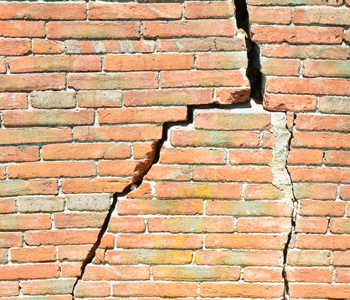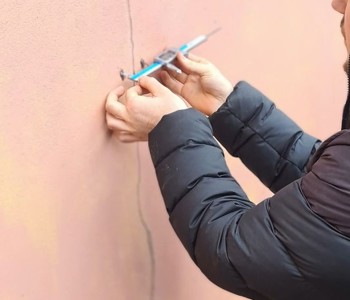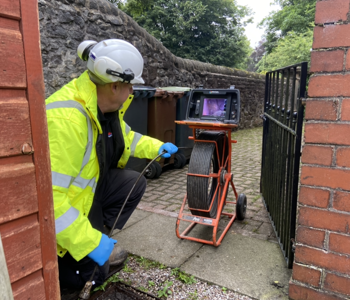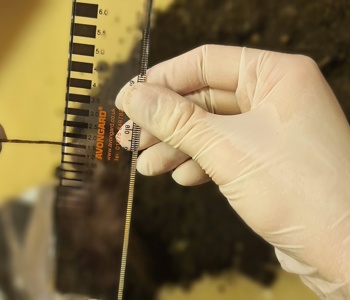What are Trial Pits, Boreholes, and In-situ Testing?
Trial pits and boreholes are extensively used for sub-ground analysis and to understand ground conditions. At CTS our experienced site investigation teams are specialists in trial pits, boreholes, and in-situ testing and provide support during site investigations, soil analysis, or geological survey.
Trial pits are a cost-effective technique used to assess soil profiles and groundwater conditions, as well as to determine foundation type and depth.
They are carried out on any below-ground structure to collect relevant and accurate information for the client. Trial pits, boreholes, and in-situ testing can also be used to expose foundation piles to check the correct location or carry out pile-specific tests.

Our Services
Trial Pits
Trial pits are excavated by hand digging techniques for the purpose of confirming shallow foundation construction of existing buildings, for locating existing utilities, or for sampling the near-surface soils.
Boreholes
Boreholes are carried out as an extension to the trial pits or as an independent investigation to determine soil strata and the presence of roots. These are generally to a depth of 3m or 5m, but our capabilities extend beyond this. Soil samples are retrieved and, along with roots, are sent to our UKAS-accredited* laboratories where a range of tests can be conducted.
Trial Pits Testing Process
The process of trial pits testing involves the excavation of specific areas of ground to gather information about soil profiles, groundwater conditions, and foundation types etc. the testing process involves the following key stages:-
- Site Preparation and Excavation
- Soil Sampling
- Visual inspection
- Groundwater observation
- In-situ testing (if applicable) SPT or CPT tests, plus Hand Shear Vane and Mackintosh Probe
- Interpretation analysis and reporting
Borehole Testing Process
Boreholes can be carried out either by hand, using a hand auger to minimise ground disruption, or by one of the following mechanical methods mentioned below:
- Continuous Flight Auger (CFA) drills provide a rapid and cost-effective means for drilling boreholes in clay and granular soils.
- Window samplers are an alternative to hand augers, providing disturbed samples in restricted access situations. They are mostly applicable to clay soils.
- Mini rig (archway) is a track-mounted rig that uses the same system as the window sampler but is far more heavy-duty. This is capable of casing boreholes to achieve the required depth in poor ground conditions. It is also capable of carrying out in-situ strength tests of either SPT (standard penetration test) or a dynamic probe that consists of a continuous penetration test to the required depth. This gives clients a comprehensive strength chart for the full depth of the test.
Mechanical options can also be used to install Datums water and gas monitoring wells.
In addition to trial pits and boreholes, at CTS we offer a comprehensive range of in-situ testing services including:
- Penetration tests using a Mackintosh probe
- Standard penetration tests (SPT)
- Shear vane tests to understand the undrained shear strength of soil
Why Choose CTS for Trial Pits, Boreholes, And In-Situ Testing Services?
At CTS our specialist team provides fast, effective, and accurate trial pits, boreholes, and in-situ testing services to the highest standards ensuring complete satisfaction from our clients.
To find out more about our trial pits, boreholes, and in-situ testing services, please get in touch with a member of the CTS team today, and we’ll be more than happy to answer any questions you may have regarding our services and how we can help you.
Our Other Site Investigation Services:
Request a Quote
Frequently Asked Questions
How deep does a borehole need to be?
There is no set answer for how deep a borehole needs to be. Put simply, the borehole should be as deep as is required. The average depth of a borehole is between 3.0m and 12.0m, but this can be more, depending on the job or machinery.
Can I build over a borehole?
This depends on the size and depth of the borehole and what is being built upon it, but the correct reinstatement of the borehole is required whether being built on it or not.
What is a trial pit test?
A trial pit (also known as a test pit) is a type of intrusive ground investigation used to determine the condition of the ground and the make and profile of the foundation. Trial pits can also be excavated relatively quickly.
Why is a trial pit taken for?
Trial pits are commonly used to determine the foundation depth and construction and investigate ground conditions to understand the soil profile within the ground. They can be instrumental where buried structures, variable conditions, or contamination is suspected or needs further investigation
When would you hand dig a trial pit?
Hand excavation is necessary if underground services, such as water, gas, electricity, etc., are known to exist, particularly if their location is uncertain. It is also necessary when the base of the excavation is below the depth at which any services may exist.
What is the difference between a borehole and trial pit?
A trial is used to determine the foundation depth, construction, and profile that the object sits upon. This is limited to health and safety regulations and working space. Boreholes' advantages are that greater depths can be achieved, and more detailed soil and rock strengths can be recorded.
* To view our full UKAS schedule visit here.




